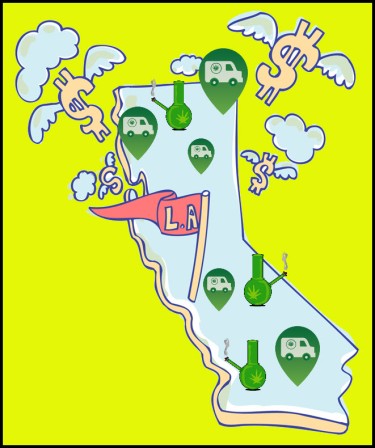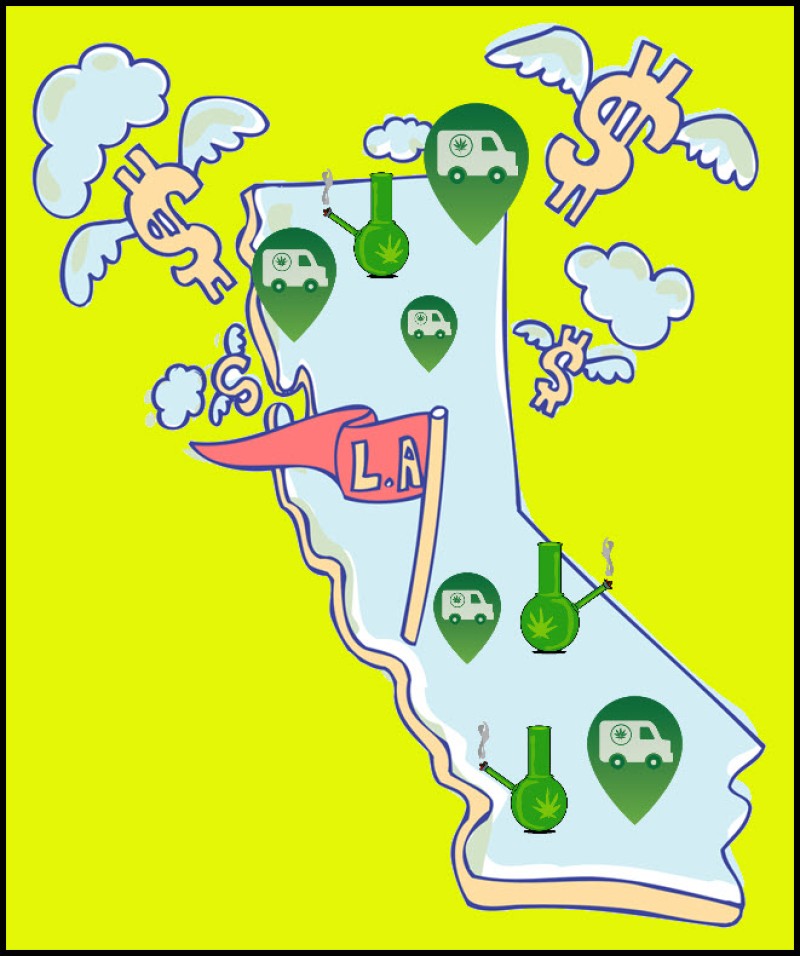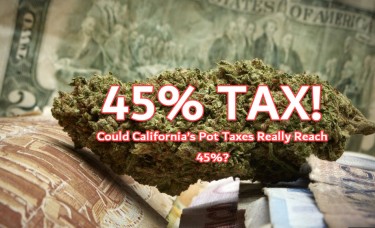
Cannabis businesses in California might be in for a tough time as the state is looking to clamp down on those with unpaid taxes. The issue of tax payment has long been a problem for both the government and the business owners over the years. However, it seems the bodies in charge are looking to take new and stringent moves to ensure compliance. Read on as we explore what this might mean on a large scale of things for cannabis business owners in the state.
Taxing Cannabis Businesses in California
Licensed and unlicensed cannabis businesses in California have ramped up about $200 million in unpaid taxes. With such an astronomical amount, it’s no surprise that the California Department of Tax and Fee Administration (CDTFA) is already beckoning with enforcement. It has not been business as usual for cannabis businesses skipping taxes as the CDTFA has embarked on new measures to checkmate them. Some of these unlicensed businesses have been shortchanging the licensed ones in the state through the underground grey market. However, the CDTFA looks set to bring the trend to an end.
What is the CDTFA doing about enforcement and compliance?
The state of California and its residents have always credited the CDTFA for its productiveness and it is easy to see why. The body has launched several raids in order to put a stop to the illicit and unlicensed cannabis businesses in the state. The properties seized from such raids have also been auctioned off as a means of catering to the unpaid taxes of such businesses. This and many more are the moves being made by the body to cater to the unpaid taxes of unlicensed cannabis businesses in the state.
The body is also addressing the issue of underpayment or non-payment by licensed businesses too. There is a steady escalation of efforts aimed at ensuring compliance from the business owners. The department sees these moves as a pointer towards normalcy after the pandemic brought most things downward. In an email to MJDIZDaily, the spokesperson of CDTFA Tamma Adamek explained why the department has decided to be more firm at this time. He stated that the department is fully aware of the impact the pandemic had on many businesses and how many faced hardship. However, with the economy slowly recovering, it’s only right that the department goes back to its normal approach to enforcement.
The spokesperson also went on to say that the department knows the legal cannabis retailers because they need a permit from the body. This means that at all times, the CDTFA knows who they are, where they are, and their tax status. It makes it easier to checkmate their activities than it is to address underground grey market sellers.
Successes of the CDTFA so far
As stated earlier the CDTFA has kick-started this new approach and so far it has brought back commendable results. A brief run down of some of the department’s achievements in the past three months shows just how effective they have been. The Department auctioned off a property seized in Compton for $50,000. This was the third of its kind from the department of seized properties for unlicensed businesses. Also in March, the department sold off property worth $310,000 in Whittier, east of Los Angeles after it was seized from illegal cannabis sellers. These particular operators had racked up a debt of $850,000 in unpaid taxes according to the CDTFA.
The department has partnered successfully with other government security parastatals to ensure defaulters are brought to the book. Following a raid with the Sheriff’s department of LA County, the department seized and then sold a property in Compton for $256,000. The agency has continued to work in synergy with the Highway Patrol, local and city law enforcement agencies, county licensing authorities, and so on. The outcome of this is over 1,000 inspections since 2020 leading to multiple arrests and successes. The department has recovered the equivalent of over $32 million in products and cash within that period.
Are the burdens of taxes too much?
Cannabis retailers in California have complained bitterly about the complexity and impact of taxes in the state on businesses. After the state legalized recreational use in January 2018, a total of $187 million has been amassed by licensed and unlicensed cannabis businesses. This has been attributed majorly to the hard tax policy on most legal businesses.
The policy for cannabis retailers is that they must get a permit from the CDTFA to sell after which they will file a return and pay tax on sales. Growers and distributors are also required to do the same for excise and cultivation taxes. These high taxes according to different analysts have led to the complete shut down of many cannabis businesses. Likewise, it has also favored black market operators who avoid such taxes and operate without regulatory requirements.
Is the CDTFA being too aggressive?
Despite the accolades and successes of the CDTFA particularly with cannabis businesses, some still have issues with the agency. A recent bust on March 1 with TLC Collective of Jungle Boys has gained much attention seeing as it is owned by a licensed owner. There was an extreme show of force as different unmarked gunmen stormed the premises and there was wide criticism of the act. Many believe such extreme shoe of aggression by the CDTFA will make more cannabis businesses apprehensive about working with them.
Bottom line
The situation of cannabis business taxing in California is one that requires a strong arm and that is what the CDTFA is doing presently. The department has gotten serious recently and its clampdown is being felt by many in the cannabis industry. Slowly the department aims to ensure compliance through enforcement alongside other agencies. With some successes already recorded, time will tell how effective the recent moves will eventually be. The effectiveness and reasonability of the tax returns will surely spell good news for the state and legal cannabis businesses.
CALIFORNIA CANNABIS TAXES, READ ON...
CALIFORNIA CANNABIS TAXES AS HIGH AS 45%? READ MORE!








